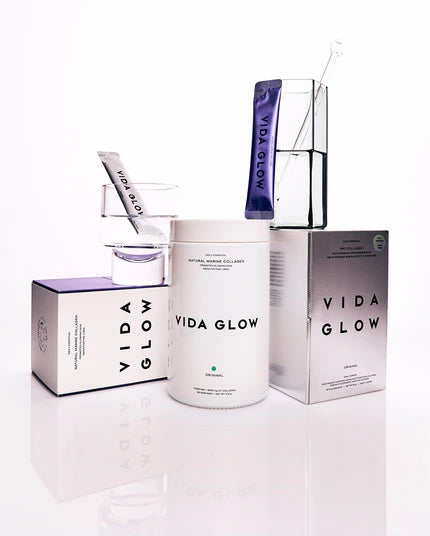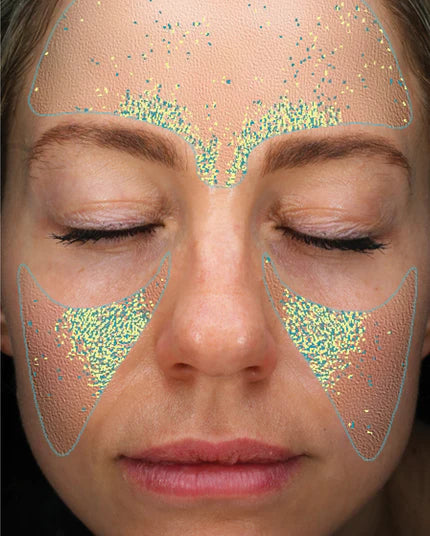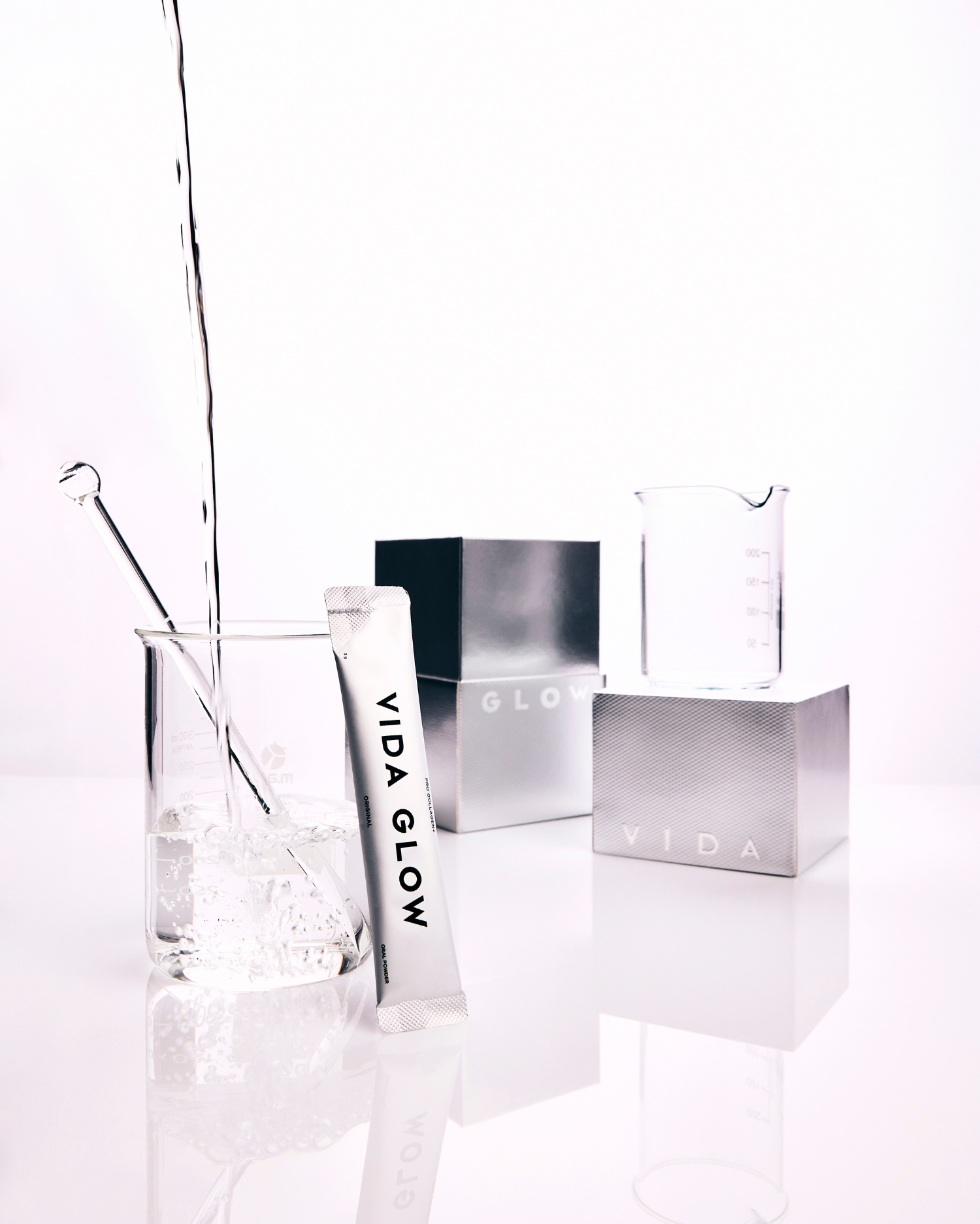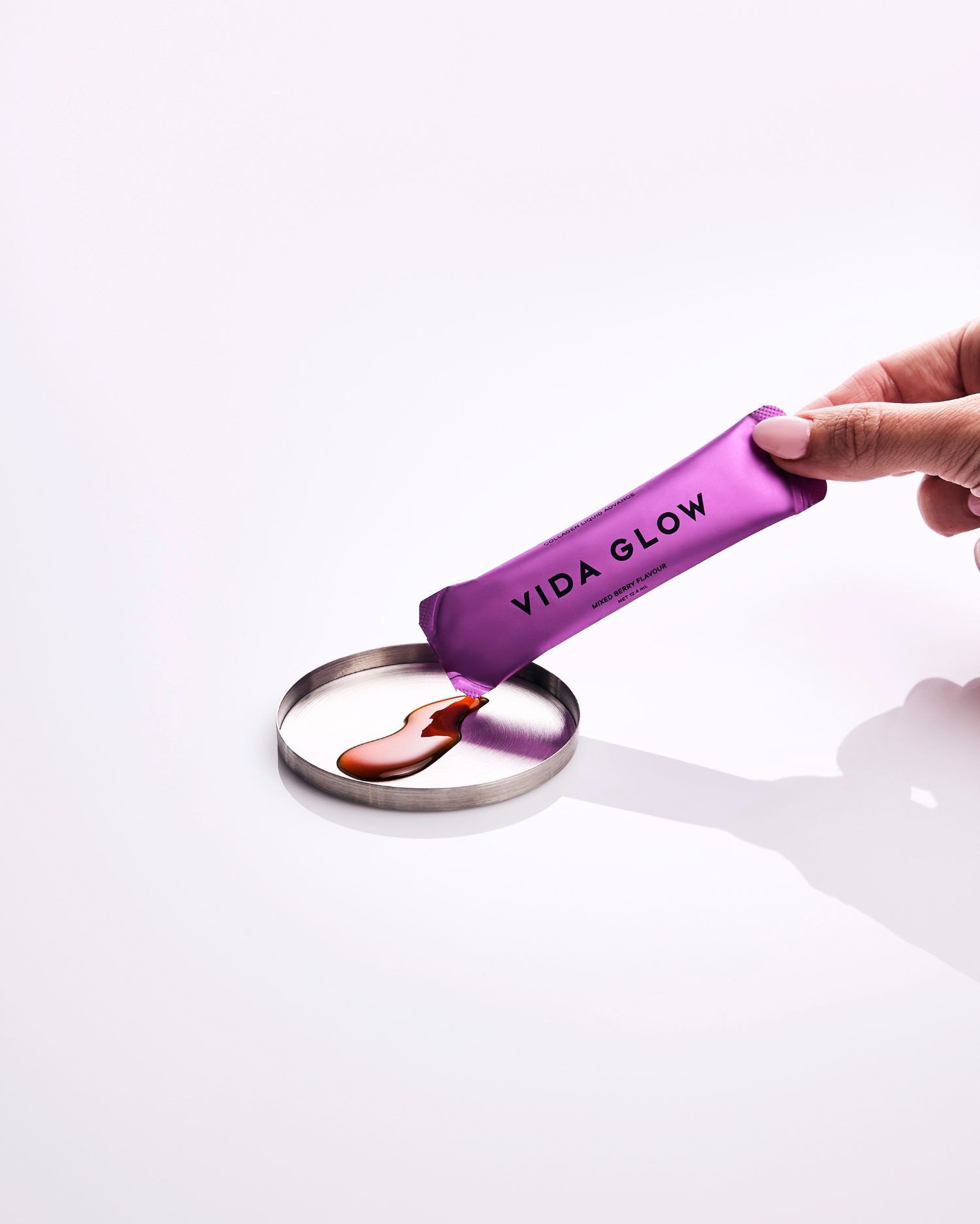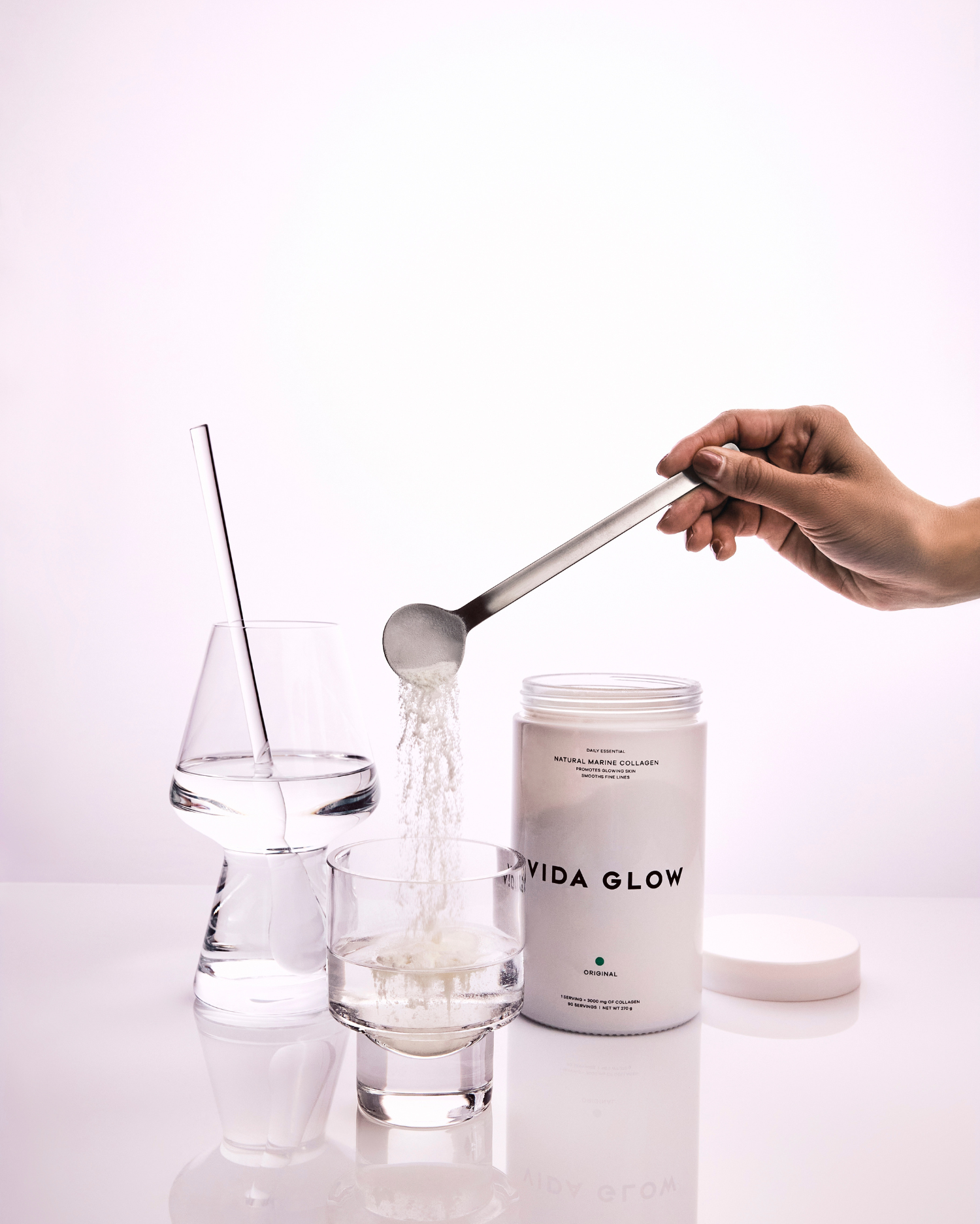Collagen boosts hair growth, strengthens hair follicles, and improves scalp health. Discover how clinically studied collagen peptides like Vida Glow’s can support visibly thicker, healthier hair.
What causes hair loss?
Experiencing hair loss can be difficult and distressing. While shedding 50–100 hairs per day is normal, noticeable thinning can occur when hair isn’t regrowing at the same rate. Female hair loss is surprisingly common affecting up to 38% of women at some point.3
Common causes include:
- Hormonal changes (e.g. postpartum, perimenopause)
- Genetics
- Nutritional deficiencies
- High stress levels
- Medical conditions or medications
- Overstyling or chemical damage
- Natural ageing
Understanding the root cause of your hair loss can help guide the right support, whether nutritional, lifestyle or topical.
Collagen benefits for hair: what the science says
Collagen is the most abundant structural protein in the human body and plays a fundamental role in maintaining the strength, elasticity and integrity of connective tissues. It’s found in skin, nails, bones, joints and crucially, the scalp and hair follicles, where it helps to support healthy hair growth. If you're wondering what collagen is, it’s essentially the building block that holds much of your body together.
-
Providing amino acids for keratin production, the protein hair is made of
-
Supporting the dermal layer of the scalp, where follicles are anchored
-
Reducing oxidative stress that may damage follicles and accelerate shedding
Maintaining hair follicle structure as we age
Choosing a high-quality source of collagen, such as marine collagen, may offer enhanced benefits due to its smaller peptide size and superior bioavailability. You can explore more on marine collagen benefits to understand how this highly absorbable form supports not just hair, but skin, nails and beyond.
Clinically studied collagen peptides
Emerging research, including preclinical studies and small-scale human trials, supports collagen’s role in improving visible hair quality. A 2020 clinical study found that daily supplementation with 2g of bioactive collagen peptides significantly increased hair thickness compared to placebo.¹
Importantly, Vida Glow’s collagen range is backed by clinical studies, offering evidence-based support that meets the needs of consumers seeking proven results.
Collagen and the hair growth cycle
The hair growth cycle includes three phases:
-
Anagen (growth)
-
Catagen (transition)
-
Telogen (rest/shedding)
Research suggests that bioavailable marine collagen peptides may support the prolongation of the anagen phase, encouraging more active follicles at once.
In one preclinical study, collagen peptides stimulated the Wnt/β-catenin signalling pathway, promoting new follicle development.²
Collagen hair growth before and after: when to expect results
Hair grows in cycles, so results from collagen supplementation take time. Most users notice visible improvements in:
- Hair thickness
- Texture and shine
- Strength and reduced breakage
Consistent daily intake for 8–12 weeks is typically needed to see results, with optimal effects emerging around the 3–6 month mark.
How to increase hair growth naturally
While collagen supplements are a clinically supported way to improve hair health, combining them with the right nutrients and lifestyle choices can further optimise outcomes. Consider:
-
Protein-rich foods (lean meats, fish, bone broth)
-
Vitamins & minerals such as:
- Zinc
- Biotin
- Iron
- Vitamin C & B vitamins
- Iodine & selenium
These nutrients are essential for normal follicle function, cellular repair and overall scalp health. For targeted support, Vida Glow’s Hairology is a once-daily hair supplement powered by clinically studied ingredients that help reduce hair shedding, support follicle activity and improve hair strength from within. Formulated to complement your collagen routine, Hairology addresses key nutritional deficiencies that can impact hair growth, making it an ideal pairing with marine collagen for visible, long-term results.
How to increase hair density: complementary options
If you're looking to improve not just growth but density and scalp coverage, a multi-pronged approach can help.
Options to explore include:
-
Collagen supplementation (e.g. Natural Marine Collagen, Liquid Advance)
- Topical treatments like Minoxidil
- Scalp microneedling or PRP therapy
- Stress management and sleep quality
Always speak with a healthcare provider if you suspect hormonal imbalances or chronic conditions are affecting your hair.
Your daily collagen ritual
Vida Glow’s marine collagen is hydrolysed for optimal absorption, so your body can effectively use it to support hair growth, skin elasticity and nail strength. Just one sachet a day, mixed into water, coffee or a smoothie, makes it easy to stay consistent. Unlike generic powders, Vida Glow’s collagen range is clinically studied and proven to deliver real results. Choose from our best-selling Natural Marine Collagen Original, advanced Collagen Liquid Advance, or next-generation Pro Collagen+ - each designed to support visible results from within.
Start your collagen routine today and experience the difference.
Summary: can collagen help hair growth?
Collagen plays a crucial role in supporting scalp health, follicle integrity and keratin production. Backed by early-stage clinical research and with a well-established safety profile, collagen supplementation, especially in a bioavailable marine form, can be a valuable part of a long-term hair growth routine.
For best results:
- Be consistent (daily use for at least 12 weeks)
-
Choose a clinically studied collagen like Vida Glow
- Support your routine with the right nutrients and habits
References
-
Oesser, S. (2020). The oral intake of specific Bioactive Collagen Peptides has a positive effect on hair thickness. Nutrafoods 1:134–138. doi: 10.17470/NF-020-0019
-
Hwang, S. B., Park, H. J., & Lee, B. H. (2022). Hair-Growth-Promoting Effects of the Fish Collagen Peptide in Human Dermal Papilla Cells and C57BL/6 Mice. International Journal of Molecular Sciences, 23(19), 11904. https://doi.org/10.3390/ijms231911904
-
Fabbrocini G, Cantelli M, Masarà A, Annunziata MC, Marasca C, Cacciapuoti S. Female pattern hair loss: A clinical, pathophysiologic, and therapeutic review. Int J Womens Dermatol. 2018 Jun 19;4(4):203-211. doi: 10.1016/j.ijwd.2018.05.001. PMID: 30627618; PMCID: PMC6322157.





